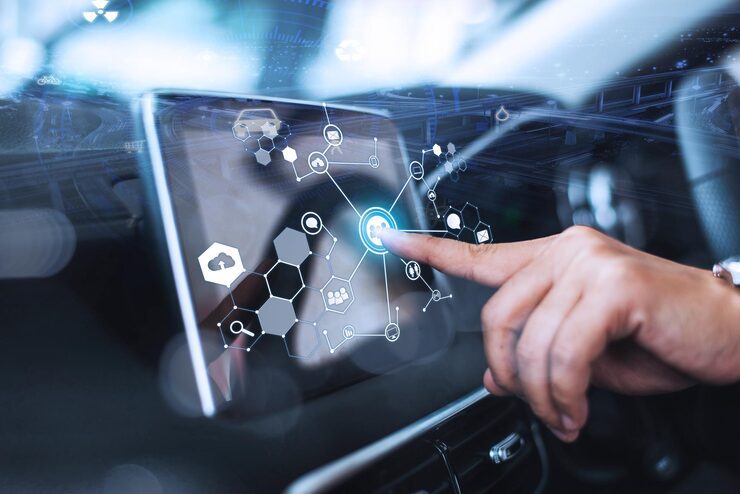Automotive technology has become the heartbeat of modern mobility, driving innovation in safety, efficiency, and sustainability. Cars are no longer just machines that take us from one place to another—they have transformed into intelligent companions designed to make life easier, safer, and smarter.
The Evolution of Automotive Technology
When we look back, automobiles were once simple mechanical inventions. Over time, technology added layers of sophistication. Electronic systems, sensors, and AI-driven features have turned cars into smart devices on wheels. Each era of progress has brought people closer to safer, greener, and more reliable vehicles.
Smart Features Defining Modern Cars
One of the most exciting aspects of automotive technology is the rise of smart features. Cars today are equipped with voice assistants, GPS navigation, and driver-assist systems that make journeys more seamless. Instead of struggling with maps or manual controls, drivers now rely on technology that anticipates needs and enhances comfort.
Electric and Hybrid Vehicles Leading the Charge
Sustainability is now at the forefront of global transportation. Electric vehicles have become the symbol of innovation, reducing dependency on fossil fuels. Hybrid models are bridging the gap, offering consumers efficient solutions. This shift highlights how automotive technology is not only about convenience but also about saving the planet for future generations.
Safety as the Core of Automotive Innovation
Modern vehicles are safer than ever before. Features such as lane departure warnings, adaptive cruise control, and collision-avoidance systems minimize human error. These breakthroughs reduce road accidents significantly, proving that technology can literally save lives.
Autonomous Driving: The Future of Mobility
Self-driving cars, once a fantasy, are closer to reality. AI and machine learning allow vehicles to analyze traffic, make real-time decisions, and ensure smooth navigation without driver intervention. While full autonomy is still in testing phases, the progress indicates a future where traffic jams and accidents might become rare.
Connectivity and the Internet of Vehicles
A major leap forward in automotive technology is connectivity. Cars now communicate with each other, with traffic systems, and even with smart cities. This helps reduce congestion, improves fuel efficiency, and makes travel predictable. Imagine your car suggesting the best route based on live traffic updates or alerting you before a potential hazard—it’s already happening.
Sustainability and Green Technology
Climate change has pushed the industry to focus on green innovations. Lightweight materials, electric drivetrains, and renewable energy integration are now central themes. Car companies are investing heavily in recycling programs, eco-friendly manufacturing, and advanced batteries to create a greener tomorrow.
Driving Experience Like Never Before
Cars are no longer just about transportation; they are experiences in themselves. Luxury brands and even mainstream manufacturers integrate immersive infotainment systems, AR-based dashboards, and personalized driving modes. Passengers feel like they’re stepping into futuristic spaces rather than traditional cars.
Challenges Ahead for Automotive Technology
While progress is rapid, challenges remain. High costs of electric vehicles, lack of charging infrastructure, and cybersecurity threats pose barriers. Yet, each challenge pushes the industry toward better, more secure solutions. Consumers are demanding affordability, accessibility, and reliability—pressuring automakers to innovate further.
The Role of AI and Robotics in Automotive Growth
Artificial Intelligence is shaping cars into decision-making entities. From predictive maintenance to voice recognition, AI ensures vehicles operate with minimal human intervention. Robotics, on the other hand, improves manufacturing, making cars safer and more affordable. Together, they redefine the foundation of automotive technology.
Why 2025 Marks a New Era
By 2025, we are entering a new chapter in mobility. Electric adoption will rise globally, autonomous driving will be tested on wider scales, and connectivity will make cars part of the broader digital ecosystem. The coming years promise a blend of sustainability, safety, and convenience.
FAQs
Q1: What is the role of AI in automotive technology?
AI powers autonomous driving, predictive maintenance, and smart safety systems, making vehicles more reliable and efficient.
Q2: How are electric vehicles shaping the industry?
Electric cars are reducing emissions, cutting fuel dependency, and introducing cleaner ways of commuting for daily life.
Q3: Is autonomous driving safe for everyday use?
Autonomous driving is still being tested, but safety records show promising results with fewer human errors on the road.
Q4: What challenges does automotive technology face?
High costs, cybersecurity threats, and limited charging infrastructure remain obstacles to faster adoption.
Q5: How is automotive technology improving driver experience?
With smart infotainment, AR dashboards, and connectivity, cars are now immersive, making journeys smoother and more engaging.
Read also:
kl rahul state
australian men’s cricket team vs england cricket team match scorecard
india national cricket team vs south africa national cricket team match scorecard
pakistan national cricket team vs south africa national cricket team match scorecard

